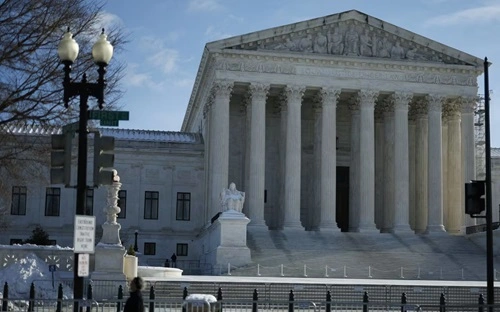In a decisive move that underscores the U.S. government’s commitment to combating financial crime, the Financial Crimes Enforcement Network (FinCEN) has petitioned the Supreme Court to reinstate a law mandating the disclosure of ownership information for certain entities. This request comes in the wake of a lower court ruling that struck down the legislation, creating a significant obstacle for law enforcement agencies working to trace illicit financial flows and deter money laundering.
The Contested Legislation

The law in question, a critical component of the Corporate Transparency Act (CTA), was designed to pierce the veil of anonymity that often surrounds shell companies. Under its provisions, corporations, limited liability companies, and similar entities were required to disclose their beneficial owners—the individuals who ultimately own or control the entity—to FinCEN. The goal of this legislation was to enhance transparency in the financial system, helping authorities identify and curb activities such as tax evasion, terrorist financing, and corruption.
However, critics of the law, including some business groups and privacy advocates, argued that it imposed undue burdens on small businesses and infringed upon privacy rights. A federal district court sided with these challengers, ruling the law unconstitutional and halting its implementation.
The Importance of Beneficial Ownership Disclosure
For years, financial watchdogs have flagged the lack of beneficial ownership transparency as a significant loophole in the U.S. financial system. Criminals often exploit this opacity to move money undetected, using shell companies to hide their identities and obscure the origins of illicit funds. The absence of ownership disclosure has also made it difficult for law enforcement agencies to follow the money trail in cases involving fraud, embezzlement, and organized crime.
By requiring entities to report beneficial ownership information, the CTA aimed to align the U.S. with international anti-money laundering standards. Similar laws have already been enacted in countries such as the United Kingdom, where the introduction of public registers has significantly bolstered financial oversight.
FinCEN’s Push for Reinstatement
In its appeal to the Supreme Court, FinCEN emphasized the urgent need for the law to be reinstated, arguing that the ruling by the lower court jeopardizes national security and undermines efforts to combat financial crimes. The agency highlighted cases where the lack of ownership transparency has hindered investigations into criminal networks and enabled the siphoning of billions of dollars through opaque corporate structures.
FinCEN also pointed out that the law included safeguards to protect sensitive information. Beneficial ownership data would be collected in a secure, non-public database accessible only to authorized government agencies and financial institutions conducting due diligence under strict protocols.
Balancing Transparency and Privacy
While FinCEN and its allies stress the necessity of the law for crime prevention, opponents remain steadfast in their concerns about privacy and administrative burdens. Small businesses, which constitute a significant portion of the entities affected by the law, argue that the compliance requirements are overly cumbersome. Privacy advocates also caution against the potential misuse of collected data, even with the promised safeguards.
However, proponents of the law argue that the benefits of enhanced transparency far outweigh the drawbacks. They contend that compliance costs are minimal compared to the financial and societal costs of unchecked financial crime. Moreover, they note that other nations have successfully implemented similar measures without significant adverse effects on businesses.
What’s at Stake
The Supreme Court’s decision on this matter will have far-reaching implications for the U.S. financial system and its role in the global fight against illicit finance. If the law is reinstated, it will mark a significant victory for advocates of financial transparency and strengthen the country’s anti-money laundering framework. Conversely, if the lower court’s ruling is upheld, it could embolden criminals and make the U.S. a more attractive destination for illicit financial activity.
Looking Ahead
As the Supreme Court reviews FinCEN’s appeal, the debate over the balance between financial transparency and privacy is likely to intensify. The case highlights the ongoing tension between the need for robust regulatory measures to combat crime and the importance of protecting individual and business rights.
Regardless of the outcome, one thing is clear: the push for greater financial transparency is not going away. Whether through legislative amendments, technological innovations, or international cooperation, the demand for accountability in the financial system will continue to shape policy discussions in the years to come.















